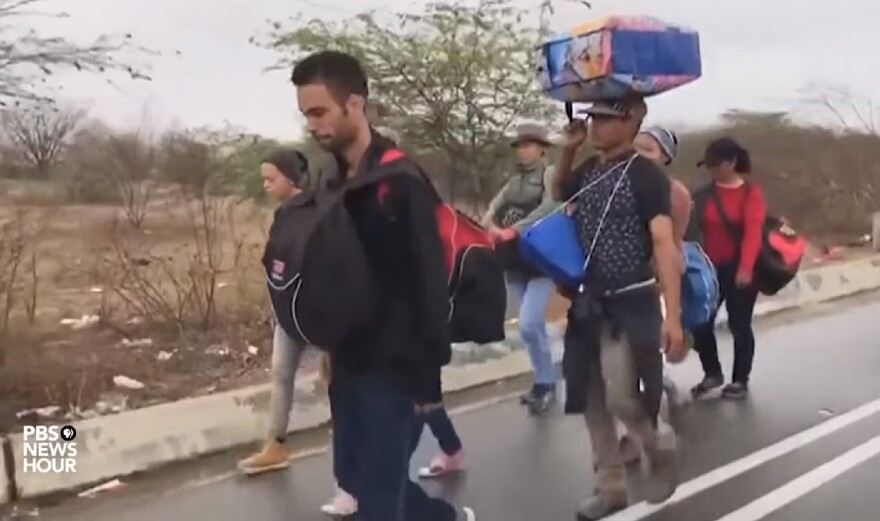As of August 2023, just fewer than eight million people have fled Venezuela. This is 13% of the South American nation’s population and the largest refugee crisis in Latin America. It’s one of the largest mass migrations in history.
The exodus crisis is being driven by an economic collapse, political upheaval, an authoritarian brutal crackdown on dissent, soaring crime, medication shortages and a humanitarian emergency.
Many of these migrants deserting Venezuela go to neighboring Colombia, Peru, and Chile but also the United States.
The number of Venezuelan immigrants in the U.S. increased from 40,000 in 2010 to 215,000 in 2021. There are now more than 600,000 Venezuelans in the U.S. Most live in Florida, with the second largest population in Texas.
The main factor complicating the U.S. government's response to illegal border entries by Venezuelans is the strained diplomatic relationship with Venezuela's socialist government. The U.S. sanctions Venezuela due to its human rights abuses and repressive policies.
And there are signs that the Venezuelan exodus will only get worse. According to pollster Consultores 21, 40 percent of the population of Venezuela wants to leave the country.
Venezuela was once one of the most prosperous countries in Latin America, but it plunged into a crisis after a decade of economic mismanagement and corruption by its socialist-led dictatorship government, the decline in oil prices and economic sanctions led by the United States. Today, three-quarters of Venezuelans lives on less than $1.90 a day — the international benchmark of extreme poverty.
The minimum wage paid in Venezuelan bolivars is the equivalent of $5 a month, down from $30 in April 2022. Neither of those wages is enough to feed one person. The cost of a basic basket of goods for a family of four was estimated at $372 in December.
Meanwhile, Venezuelan migrants often suffer discrimination for their nationality, have difficulties entering the formal economy and cannot afford housing, food, health care and other basic services. They are also increasingly embarking on second migration journeys within the continent, primarily to the U.S.
Guest:
Will Freeman, Ph.D. is a fellow for Latin America Studies at the Council on Foreign Relations.
"The Source" is a live call-in program airing Mondays through Thursdays from 12-1 p.m. Leave a message before the program at (210) 615-8982. During the live show, call 833-877-8255, email thesource@tpr.org.
*This interview will be recorded on Thursday October 5, 2023.



